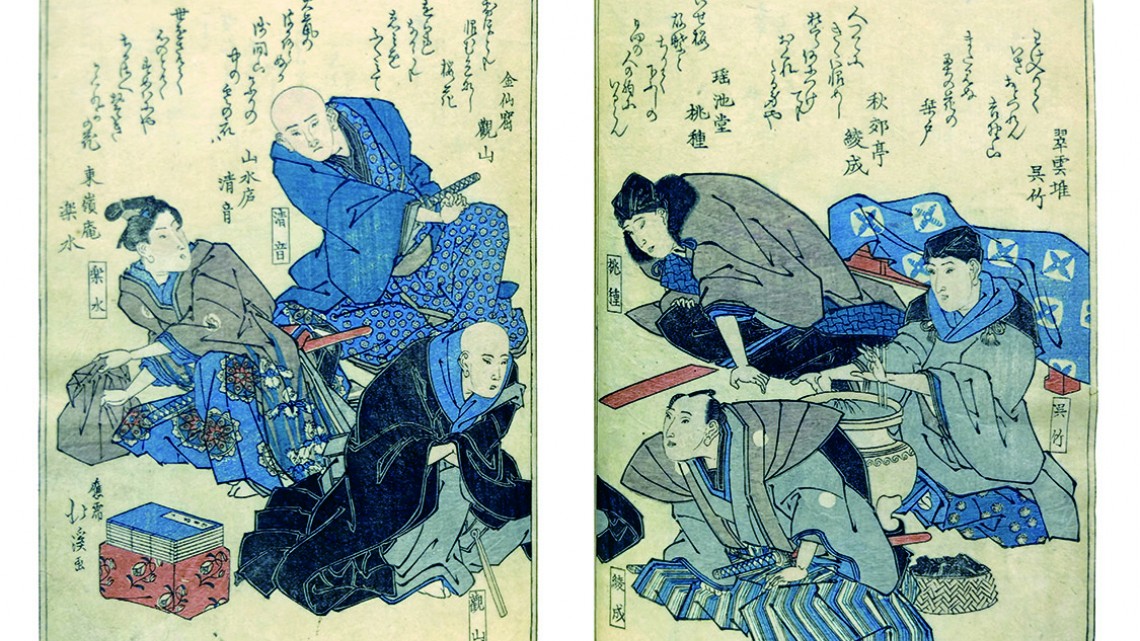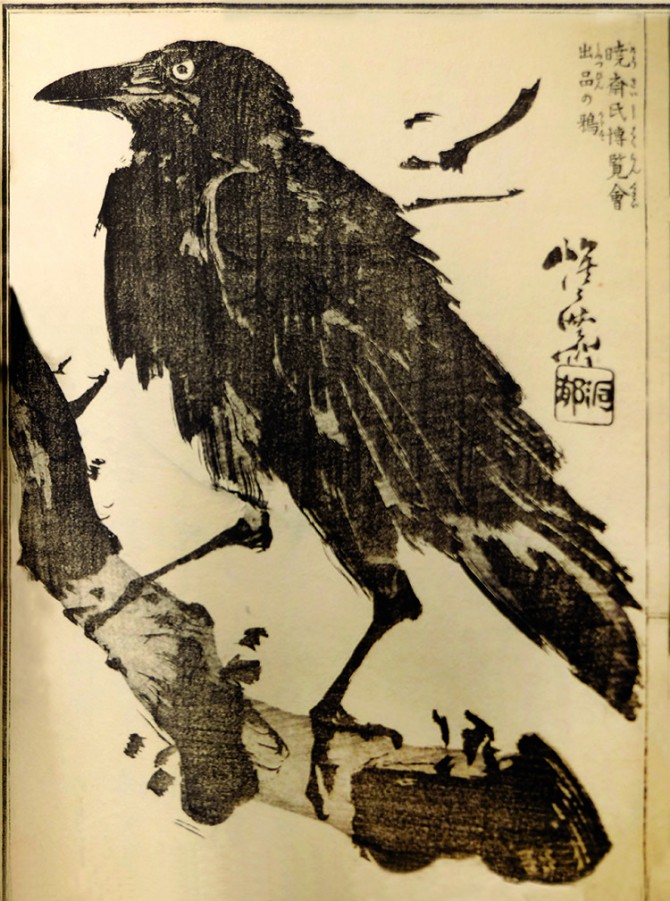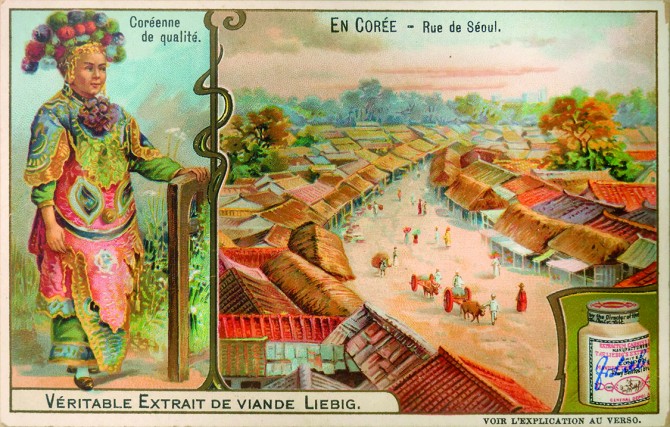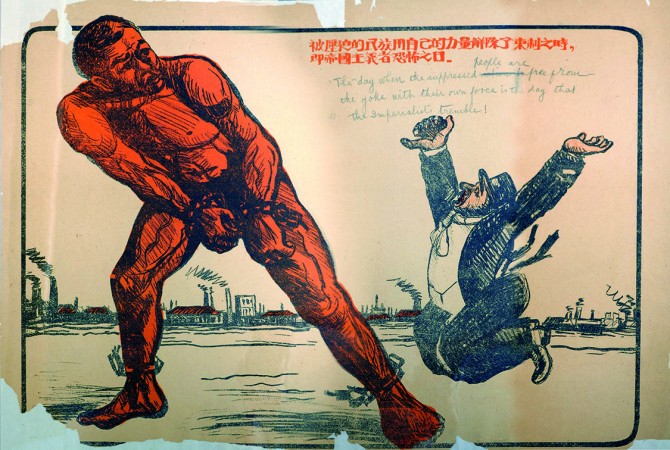
Illustration of Japanese poets composing, 19th century.
‘Unmatched’ Wason Collection marks a century of nurturing Asian studies
In 1912, Hu Shih, Class of 1914, and a group of friends donated 350 Chinese-language books to Cornell University Library “to add something to the completeness of the library itself.”
“As long as Cornell has Chinese students, this collection, I believe, will increase every year,” wrote Shih – who later served as China’s ambassador to the United States – in a letter to University Librarian George Harris.
Shih’s words proved to be prophetic. The donated books became the foundation of the Charles W. Wason Collection on East Asia, now one of the largest collections of its kind in North America and celebrating its centennial this year.
“The Wason Collection is unmatched because of the passion, commitment and generosity of those who spent a century creating it,” says Liren Zheng, Wason Collection curator. “It’s an unparalleled resource that inspires countless discoveries.”
With around 740,000 volumes on China, Japan and Korea, as well as comprehensive online resources, the Wason Collection has nurtured East Asian studies at Cornell for generations. Through partnerships and shared access to collections, the Wason Collection also helps maintain relationships between Cornell and East Asia. International students say the Asian newspapers and Asian-language books and databases in the collection help then stay connected to home.
The collection is named for Charles W. Wason, Class of 1876, who began collecting Asian materials after a cruise to Japan and China with his wife in 1903. When he died in 1918, he bequeathed that collection to the Cornell library, along with a $50,000 endowment. His gift encompassed 62,000 articles on China and more than 9,000 volumes, including the Yongle Dadian, the 15th-century Chinese encyclopedia.
Beginning with Shih and Wason, gifts from alumni have helped build a collection that draws researchers from around the world.
Today, its resources are used beyond the physical library, with more than 100 online databases providing access to exclusive electronic resources from China, Japan and Korea. Digitized collections include Willard D. Straight’s Korean and Chinese archives and cartoons depicting the Russo-Japanese war.
Sherman Cochran, the Hu Shih Professor Emeritus, says: “As I have broadened my research interests, I have found that I could move into every conceivable subfield of Chinese history – social history, cultural history and immigration history, among others – and still pursue new topics and make discoveries in the Wason Collection.”
Get Cornell news delivered right to your inbox.
Subscribe


